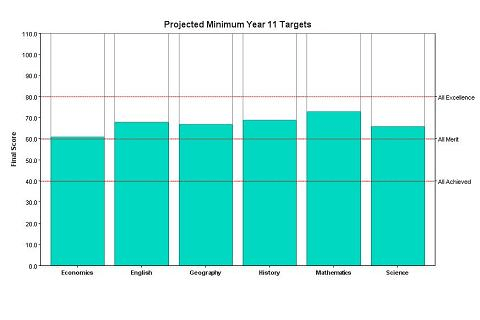The results correlate highly with future assessments and are a good predictor of academic achievement in a wide range of subject areas.
The baseline test covers the following skills:
The results correlate highly with future assessments and are a good predictor of academic achievement in a wide range of subject areas.
The baseline test covers the following skills:
Literacy is important for the prediction of future achievement in all subjects, especially English, foreign languages and language-related subjects such as social studies, history. Fundamental literacy skills assessed by BASE include vocabulary, spelling, grammar, punctuation, comprehension and the ability to follow instructions.
Numeracy is important for prediction of future achievement in mathematics and mathematics-related subjects such as the sciences, accounting, economics and technology. Fundamental numeracy skills assessed by BASE include number sense, time, estimation, computational skills, comparison of magnitudes, percentages, proportion. the ability to understand numerical information and the interpretation of tables and graphs.
Non-verbal visualisation skills are important for predicting future academic achievement in a range of subjects that includes mathematics, visual arts, drama and design. Visual and non-verbal skills assessed by BASE include 3-D visualisation, spatial aptitude, pattern recognition, problem solving and reasoning.
Processing skills are essential for success in future examinations. Processing skills relate to how quickly a student is able to carry out cognitive tasks. This is assessed under time pressure and involves focused attention, perceptual speed (i.e., the ability to quickly seek and compare visual patterns or symbols), following instructions and the ability to quickly and accurately solve problems.
View value-added assessment feedback
The feedback is highly diagnostic and provides the student scores, the ability band, stanine and percentile scores in each category. Scores are standardised to an average of 100 and SD 15. Scores above 130 are exceptional and scores below 70 indicate a special learning need. Individual profile graphs are provided for each student.
The data is broken down by gender, ability grouping, ethnicity and supports early identification of areas of individual or school wide special need or ability. This enables schools to provide appropriate acceleration or remedial support for students.

Quartile graphs are produced for each category: Literacy, Numeracy, Visual (visual), Processing and overall BASE score. All raw scores are ranked and divided into quartiles, with the "A" band containing the top 25% of the pupils who sat the BASE baseline test and the "D" band containing the lowest 25%. The Quartile graphs show a school what their intake is like, compared to the entire BASE cohort that year and the percentage of the school's BASE scores within each quartile band.

Setting clear targets for the achievement of students help school achieve the targets identified in their annual plan to raise the performance of students. These targets can be analysed by gender and ethnicity.
BASE 7 baseline feedback provides target graphs for each student in science, mathematics and English and indicate the results to aim for by the end of Year 8.

BASE9 baseline feedback provides target graphs which show the expected performance of the Year 9 student in Level 1 NCEA. A school can request updated target graphs when the pupil reaches Year 11. These Year 11 target graphs are based on how students with similar BASE scores performed in Level 1 NCEA in the previous year.
By clicking "Accept All Cookies", you agree to the storing of cookies on your device to enhance site navigation, analyse site usage, and assist in our marketing efforts.
0800 827 748 (within NZ)
+64 3 369 3999
Ext: 92111 (from a campus landline)
Direct dial: 0800 823 637
University of Canterbury | A Fair Trade University
